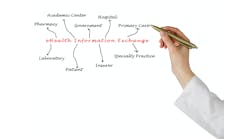Just before the April 5 start date of the Office of the Coordinator for Health IT’s (ONC’s) Cures Act final rule around information blocking, the Utah-based KLAS Research reached out to provider organizations to understand what they have done to prepare, what the biggest challenges were, and how they think the changes will impact interoperability.
Feedback from 42 respondents reveals that a majority of respondents feel their organization has taken the steps necessary to become compliant with the new regulations; most of these organizations feel they have had sufficient time to prepare. More specifically, 71 percent said their organization is either “very prepared” or “prepared” for the information-blocking requirements in the regulation, and an additional 17 percent reported “neutral” on the preparedness scale. Only 5 percent reported that their organization was “very unprepared.”
Half of the survey respondents were C-suite healthcare leaders and over 80 percent were above the director level. Given their greater access to legal and IT resources, larger organizations are the most likely to feel prepared—91 percent of respondents from large organizations (systems with more than 10 hospitals) say they are prepared or very prepared. The most commonly cited reasons for respondents’ reported levels of preparedness indeed included having sufficient time and resources. Those who feel less prepared say that’s because they’re still trying to understand what’s required, they’re not technology-compliant, or they haven’t given much thought to the issue.
Finalized for the public last year, the ONC regulation established exceptions to the 21st Century Cures Act’s information-blocking provisions and adopted new health IT certification requirements to enhance patients’ smartphone access to their health information at no cost through the use of application programming interfaces (APIs). In their broadest sense, ONC’s information-blocking rules are designed to assist in the free flow of patient information across the healthcare ecosystem.
In the final rule, ONC set compliance dates and timeframes to meet certain requirements related to the information-blocking and conditions and maintenance of certification (CoC/MoC) requirements. Due to the pandemic, the condition of certification for information blocking was delayed until November, and then, in late October, that start date was pushed back again, this time until April 5. Per the rule, there are seven conditions of certification and most have an accompanying maintenance of certification requirement.
A separate survey released last month of more than 300 clinical, technology and administrative leaders from provider, payer, IT, and other organizations, found a broad lack of awareness and preparedness around the rule. Nearly half of the respondents in that study had either not made any changes or did not know how to ensure their facility meets all of the rule requirements. A similar amount of respondents were not familiar with the term “information blocking,” and were not aware of practices or policies that would be considered information blocking.
The broader interoperability picture
However, as KLAS researchers pointed out, the most stringent information-blocking requirements for EHRs—such as implement new standardized API functionality, for example—don’t come into full force until October 2022, and a majority of respondents, including customers of all major EHR vendors, express confidence that their vendor will be in compliance. At the same time, most vendors had at least one customer express doubt that their vendor will be ready—most commonly, these less confident customers worry that their vendor is taking too long to bring necessary functionality live. Several respondents report that they have had to develop workarounds in the meantime.
Though any technology solution housing patient information is required to be in compliance with the information-blocking regulations, one of the main goals of these regulations is to make it easier for organizations to share EHR data specifically. However, as KLAS reported, even organizations that are confident in their own and in their EHR vendor’s preparation don’t necessarily feel confident the rules will reduce barriers to interoperability.
Some who are uncertain say too many exceptions exist for the changes to be effective; others say the current requirements are too focused on reducing barriers to patient access and therefore won’t resolve technical barriers between vendors, which they see as the true hindrance to interoperability; yet others express concern about potential negative repercussions of patients having access to all provider notes.
Those who think the changes will accelerate interoperability point to the fact that those who aren’t in compliance risk being fined; the regulations call for penalties—up to $1 million per fine for bad actors— for stakeholders who engage in information blocking that prevents the flow of health data. Those who believe the rules will propel interoperability also cite confidence that the technology will mature as vendors are required to share, KLAS reported.
Interestingly, when respondents were asked what health IT vendors or solutions outside of their EHR played an important role in their preparation efforts, the most common response was that in order to get the right data where it needed to be, organizations replaced third-party solutions with additional modules from their enterprise EHR vendor. The next most commonly mentioned solutions were health information exchanges (HIEs) and other services that improve sharing with outside entities.


